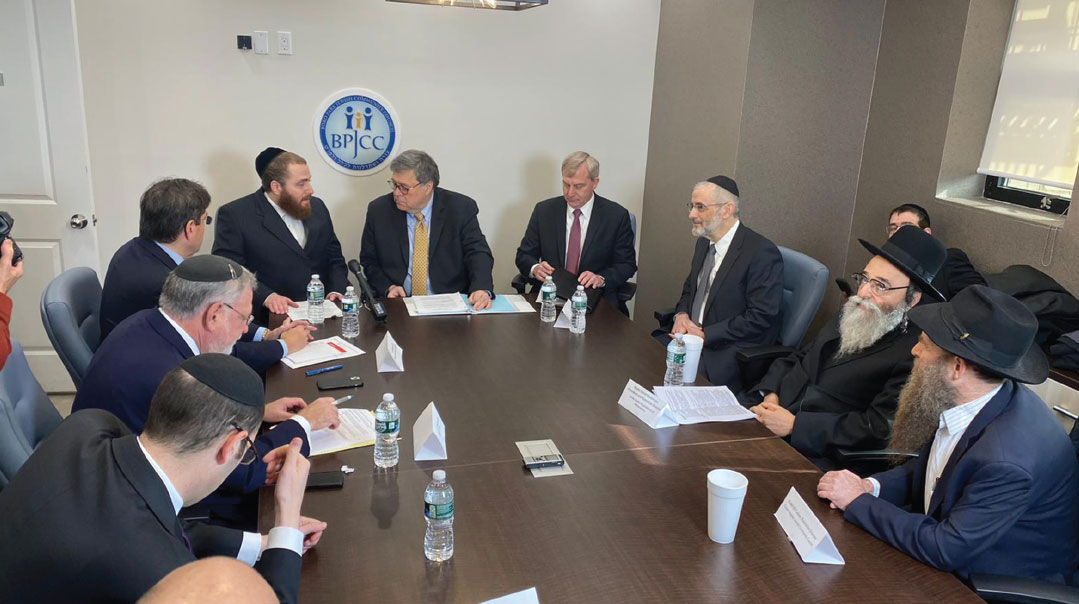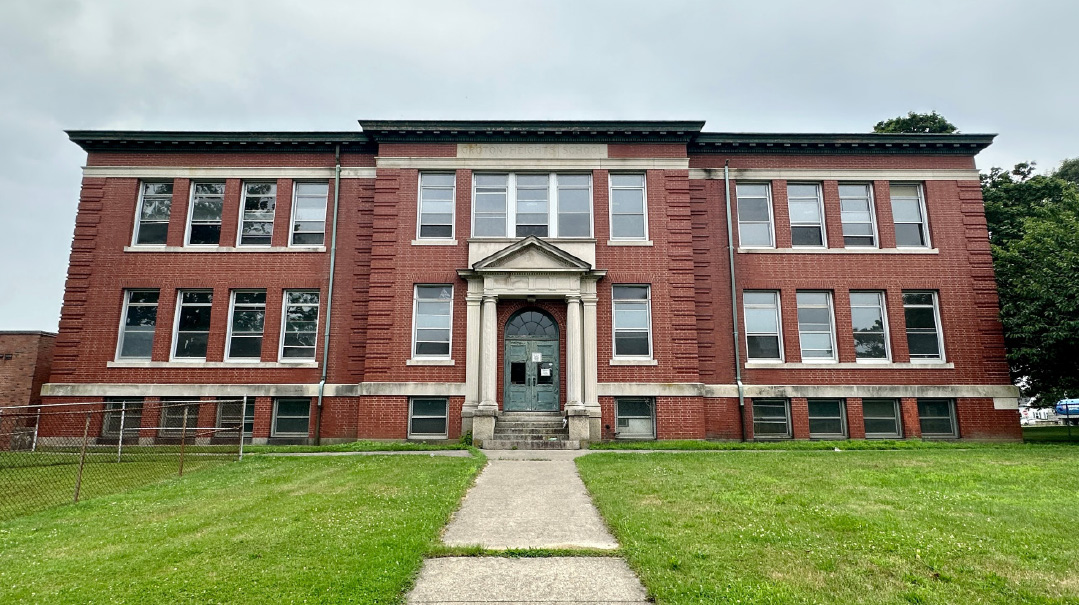Rare Sighting of Attorney General in Boro Park

Barr’s presence in the Jewish stronghold projected a strong message of solidarity with New York Jews facing a rising tide of hate

It’s not every day that the attorney general of the United States pays a visit to Boro Park. Not even every decade. In fact, the last time America’s top law enforcement official came to the Brooklyn neighborhood was over half a century ago, when Robert F. Kennedy was campaigning for New York’s Senate seat alongside President Lyndon B. Johnson on 13th Avenue and 49th Street, weeks after resigning as attorney general.
That drought came to an end last Tuesday morning, when Attorney General William Barr jumped out of his car just blocks away from where his predecessor appeared five decades ago. He came to a meeting at the Boro Park Jewish Community Council bearing a bouquet full of good news for the Jewish community.
For one, Barr’s presence in the Jewish stronghold projected a strong message of solidarity with New York Jews facing a rising tide of hate. Second, he said he will be looking carefully at attempts by the New York state education department to place onerous burdens on the yeshivah system. He also issued a directive to all US Attorney’s offices to “reinvigorate their relationship and outreach to Jewish communities.”
The issue that received the most attention was his announcement that the Justice Department will now view the prosecution of anti-Semitic acts as serving the “public interest” of the United States. This means the US Attorney General’s office can choose to prosecute acts of anti-Semitism if it finds sufficient grounds. Federal charges may or may not be filed in addition to state charges.
According to Yitzchok (Steven) Yurowitz, a criminal defense attorney with the Newman and Greenberg law firm, federal charges are harder to beat than state ones.
“The resources the federal government has for investigating [these crimes] are far broader than what the state has,” said Yurowitz, who has been a practicing attorney for a quarter century in both federal and state courts. “The feds can call in the massive manpower of the FBI, while state crimes are typically probed by local police.”
Typically, the Justice Department gets involved in cases where the state requests the feds to step in, when a verdict is “demonstrably off kilter,” or when a prosecution “is in the public interest and necessary of the United States to secure substantial justice,” Yurowitz said. Still, that doesn’t mean the federal government will involve itself in every anti-Semitic attack, he added.
This is not the first time Barr has taken bold steps to protect the Jewish community. In 1992, when he served in the same post in the administration of George H. W. Bush, Barr became the first attorney general to file a lawsuit over a locality enacting laws designed to make it difficult for religious Jews to settle there — with the village of Airmont, in Rockland County, serving as the first case.
One participant in the Boro Park meeting, Agudath Israel executive vice president Rabbi Chaim Dovid Zwiebel, said Barr has remained a stalwart friend of the Jewish community.
“The more things change, the more they stay the same,” he said. “Despite the gap of almost thirty years, Attorney General Barr’s message remains strong and consistent.”
Yurowitz said there are three principal distinctions between federal and state charges. When a person is indicted by a state grand jury, prosecutors must bring witnesses to prove the crime and the judge reviews the grand jury minutes, allowing defense attorneys to challenge them. If the case goes to trial, the defense team may attack the witnesses’ credibility before the grand jury.
On the federal level, the grand jury is allowed to indict based on hearsay statements of the FBI agent in charge, and details of the charges are not publicly reviewed.
“With the federal government, there’s a presumption of ‘regularity,’ and it’s assumed the grand jury proceeded properly,” Yurowitz said. “As a defense lawyer, I much prefer having state charges to having federal charges against my client.”
As well, state courts are also overwhelmed with a backlog of cases, and judges are usually looking to arrive at a plea bargain that can keep the defendant out of prison. That said, sometimes a defendant can benefit if prosecuted in the federal justice system.
“In federal court, it’s kind of all or nothing,” Yurowitz said. “If the jury determines it wasn’t motivated by hate — that’s it, he doesn’t get convicted of anything. Whereas in state court, they could find that there was no hate motivation, but they could still find that he committed an assault, and they could convict him for the assault.”
(Originally featured in Mishpacha, Issue 797)
Oops! We could not locate your form.













